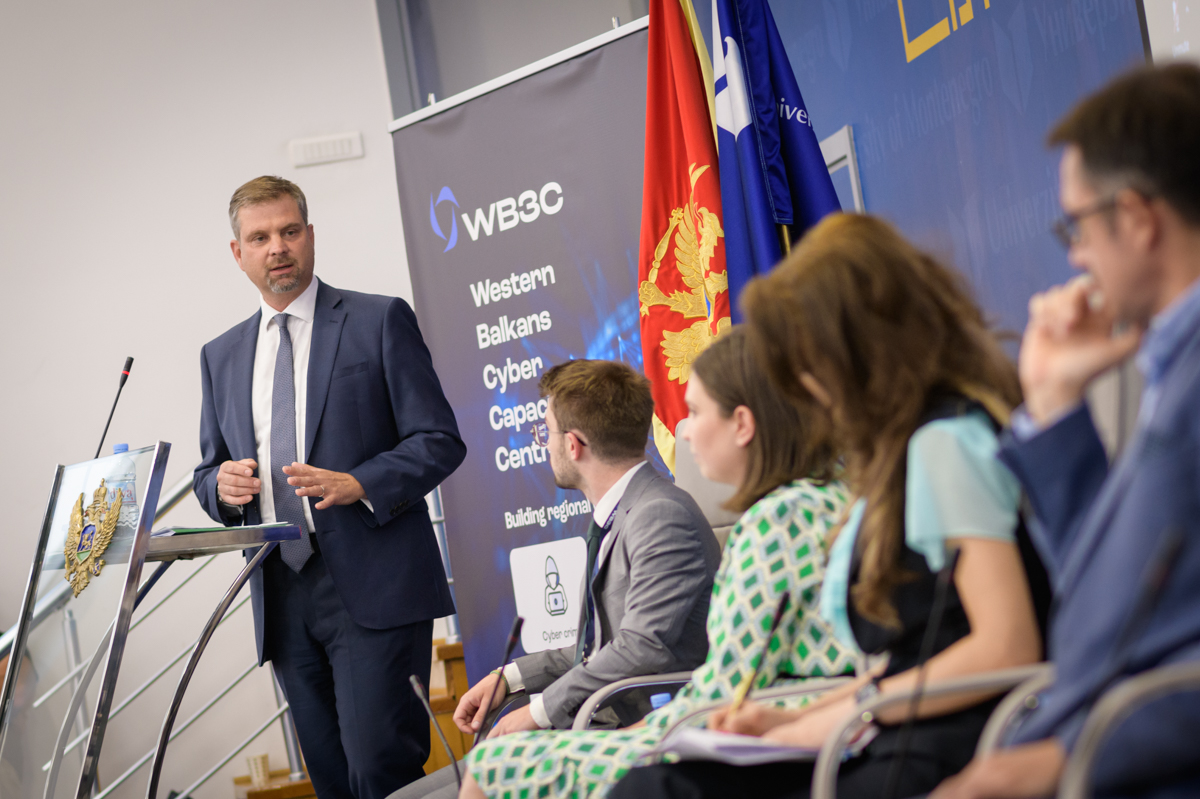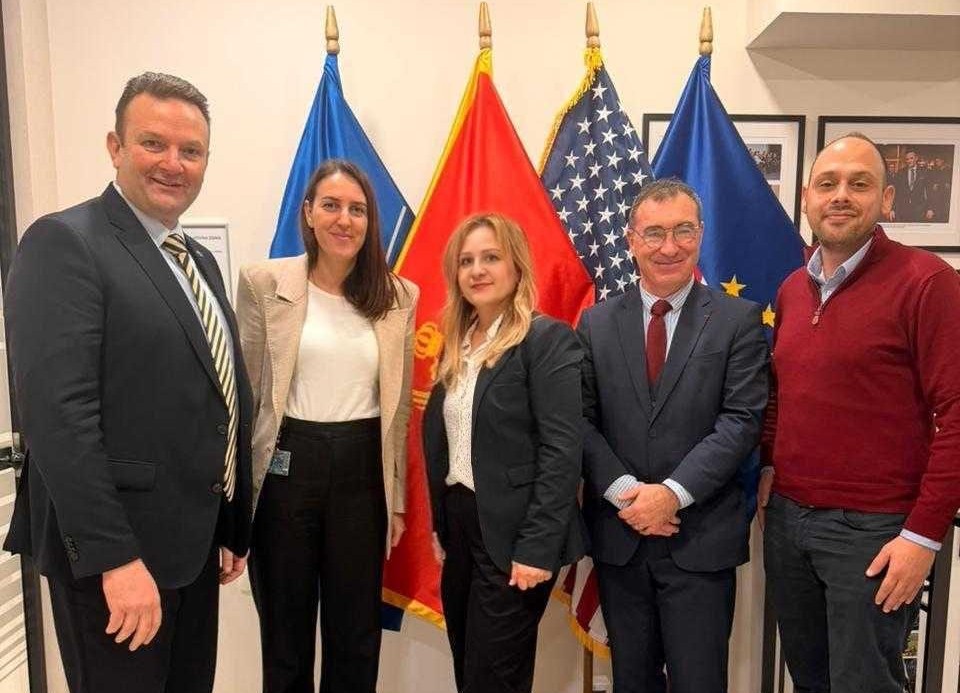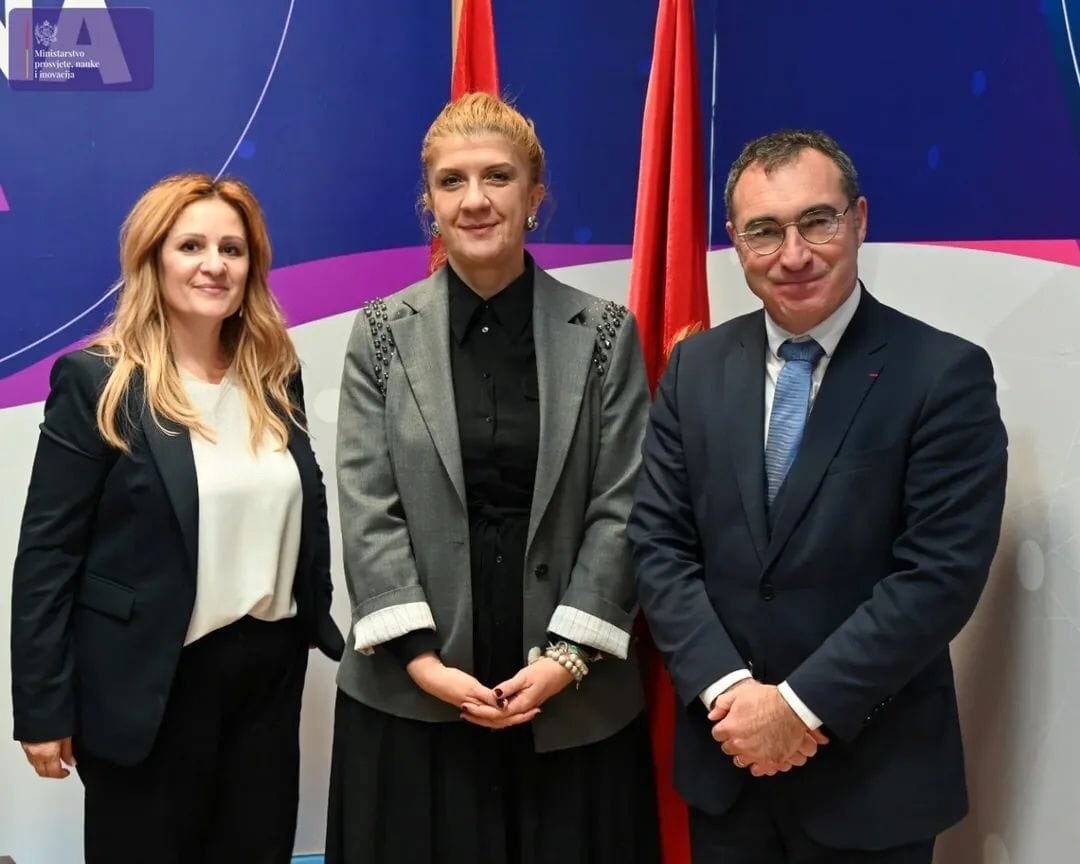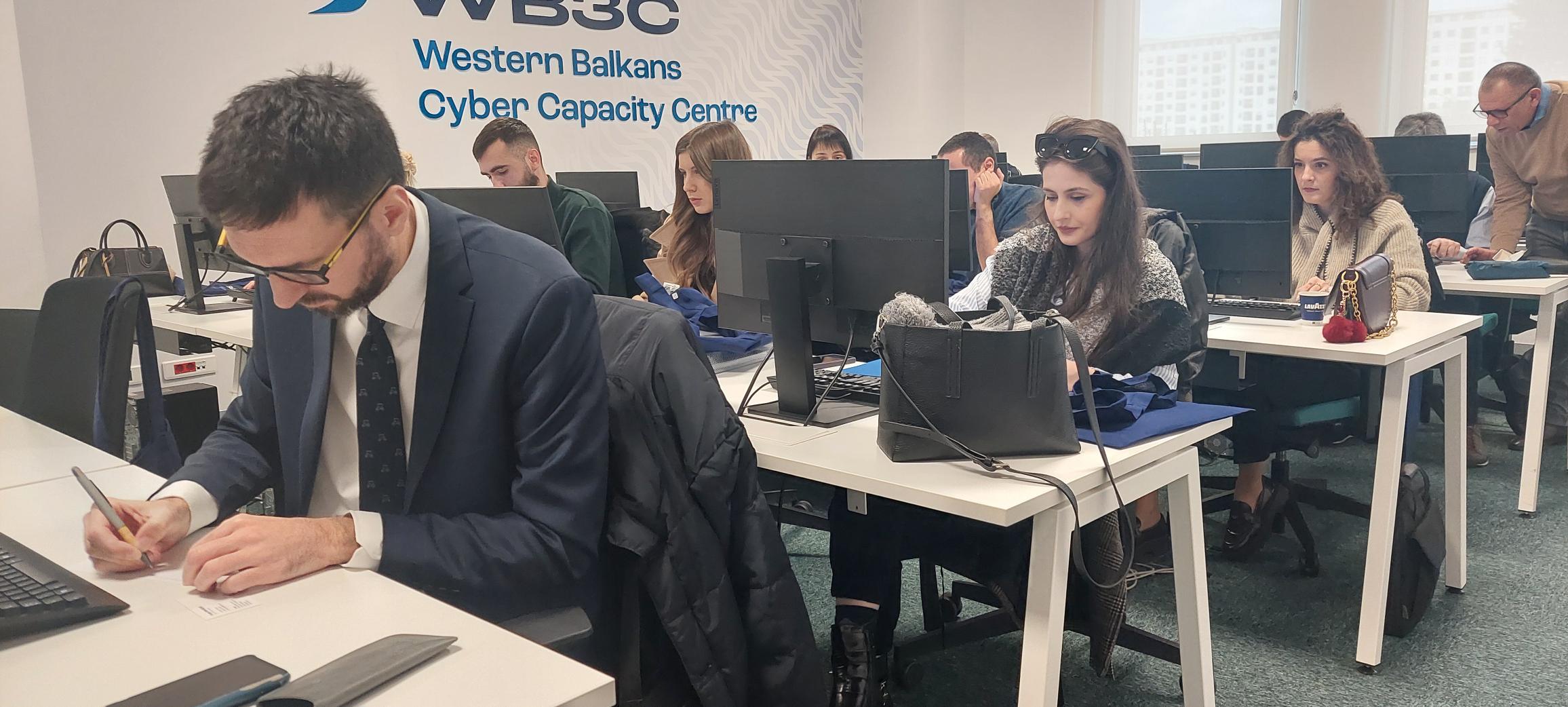As technology continues to advance and cybersecurity becomes a crucial topic in international and regional discussions, cyber diplomacy emerges as a cornerstone of modern foreign policy. Collaboration among governments, the private sector and civil society is essential to address the evolving cyber threats and shape a secure and prosperous cyberspace. With the rise in malicious cyber activities, the role of cyber diplomacy has evolved to address the current threat landscape and engage in global cyber policy discussions.
Panel 4 of the Western Balkans Cyber Capacity Centre (WB3C) Regional Conference on 11 June, led by Tadej Rupel, Cyber and Digital Ambassador of Slovenia, discussed some of the critical aspects of international collaboration in the field of cybersecurity such as:
- EU's digital diplomacy efforts and their correlation with cyber diplomacy
- Private sector contributions to cyber diplomacy in the Western Balkans
- Civil society's role in promoting collaboration in cyber diplomacy
- European Union Agency for Cybersecurity (ENISA)'s utilization of digital diplomacy in capacity-building in the Western Balkans
Key takeaways provided by our distinguished panelists are:
- Multistakeholders such as DiploFoundation, Geneva, support global cyber diplomacy by providing training and capacity-building for diplomats, conducting policy research, facilitating multistakeholder dialogues, and developing resources.
- AI can provide valuable assistance to diplomats, especially smaller countries with less resources available, in processing datasets to produce high quality reports.
- Private companies like Microsoft play a vital role in cyber diplomacy through public-private partnerships and threat intelligence sharing.
- Higher education must incorporate social sciences to align with evolving technologyneeds.
- The EU has implemented legislation and legal frameworks to address the changing security landscape and protect the open, free, and stable cyberspace.
- ENISA supplements national authorities and agencies through capacity-building and skill development initiatives in both tactical and technical domains.
- The French Ministry for Europe and Foreign Affairs is actively involved in cyber diplomacy by engaging in bilateral and multilateral dialogues to establish norms and transparency, supporting EU-wide cybersecurity efforts, and promoting international cooperation and responsible state behaviour in cyberspace\u200B.
Panelists of this session were: Demosthenes Ikonomou Nikolas Ott Erna Catic Vladimir Radunovic Andreja Mihailovic, PhD Mahé Dersoir






